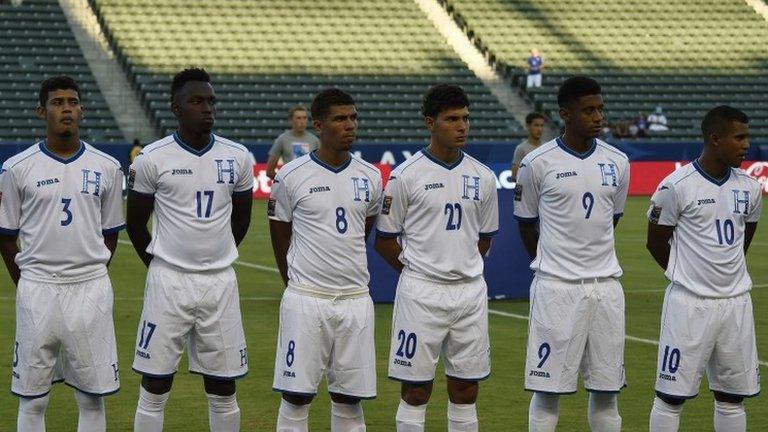Honduran firm feeds crocodiles owned by 'drug's clan'
- Published
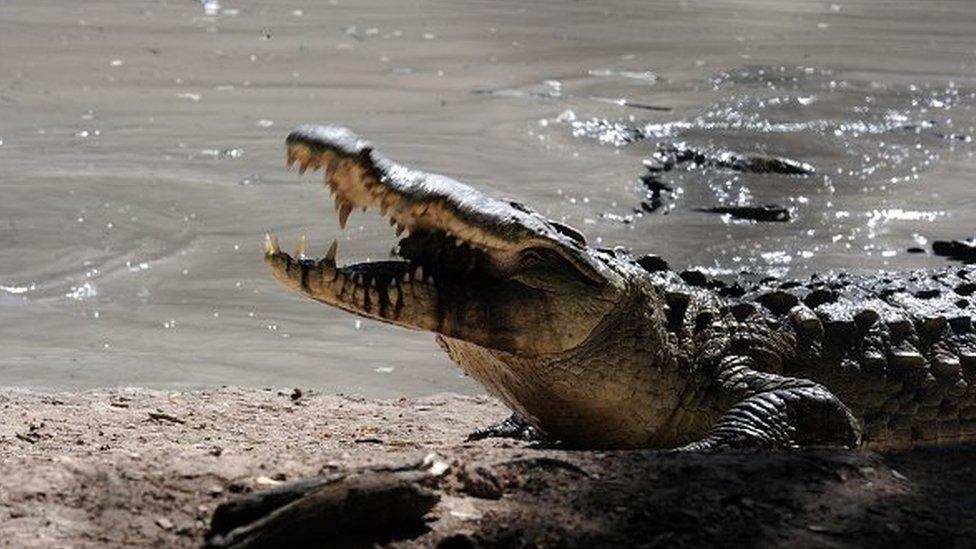
The crocodiles are kept in 130 lagoons and concrete pools at the farm 220km (135 miles) north of Tegucigalpa
More than 10,000 crocodiles in Honduras that had gone hungry for weeks because their owners had their assets frozen were fed on Tuesday.
The crocodiles are bred for their skin and meat at a farm owned by members of the influential Rosenthal family.
The United States treasury department froze their assets last month over allegations of drug trafficking.
A Honduran firm donated two tonnes of cow entrails to feed the crocodiles and some lions which also live at the farm.
Going hungry
The US treasury on 7 October froze the assets of Jaime Rosenthal, his son Yani and nephew Yankel.
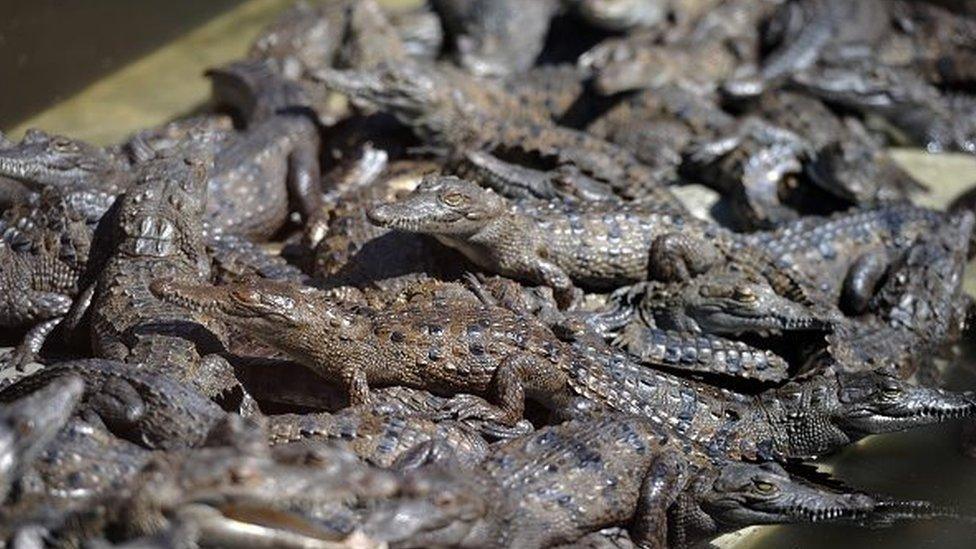
The crocodiles are bred on the farm for their skin and meat
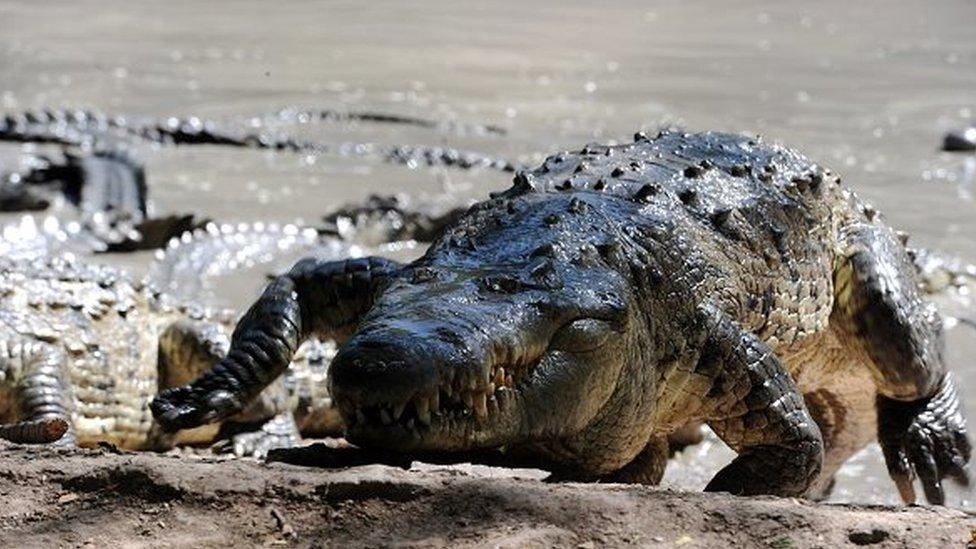
There are animals of all sizes and ages at the farm
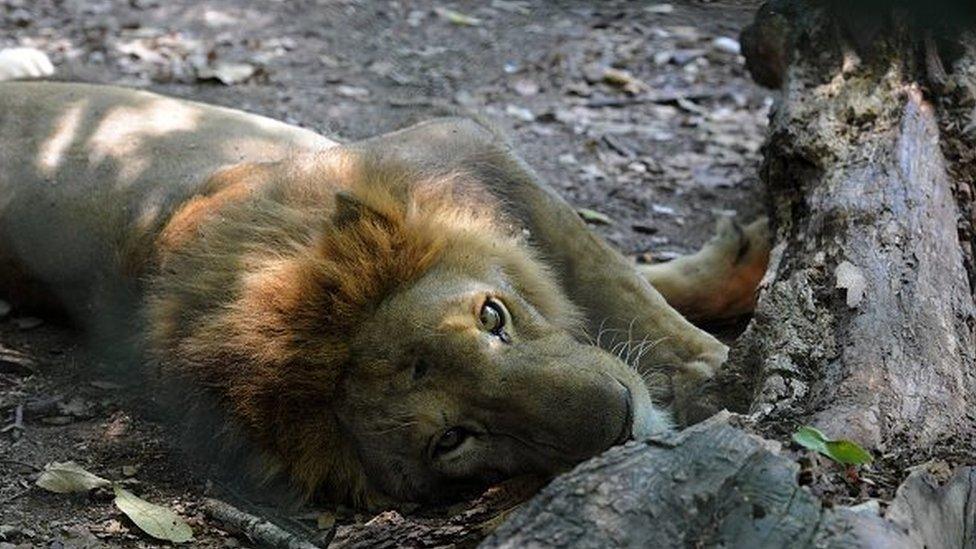
There are also seven lions
Yankel Rosenthal had been arrested the previous day at Miami airport.
US investigators accuse the three of money laundering and drug trafficking.
On Friday, the state-run Forest Conservation Institute donated 1,500kg (3,000lb) of chicken to the farm after news emerged that the animals had not been fed since the Rosenthals' assets were frozen.
But local media reported that the farm's employees refused to feed the animals until their wages had been paid.
The Forest Conservation Institute said it would find a way to reach an agreement with the workers.
On Tuesday it announced that a local firm which regularly supplied the crocodile farm had donated two tonnes of cow entrails and that both the entrails and the chicken had been fed to the animals.
The farm's manager said the food would last for "two to three days".
About 11,000 crocodiles and seven lions live at the 30-hectare farm.
Political clan
As well as the crocodile farm, the family owns a newspaper, a football club and a bank.
The bank, Banco Continental, is being liquidated, and the newspaper, Tiempo, has not been published since last week.
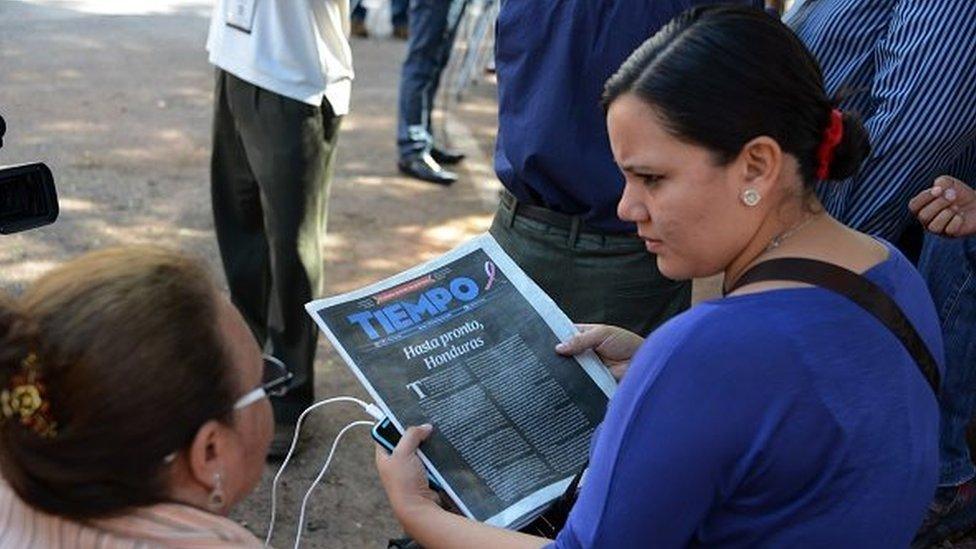
Tiempo stopped being published on 27 October
The Rosenthals have played key roles in Honduran politics for decades.
Jaime Rosenthal, 79, served as the country's vice-president from 1986 to 1990 and ran for president on a number of occasions.
Yani Rosenthal, who also had presidential aspirations, was a government minister from 2006 to 2009. Yankel is also a former minister and owns one of Honduras' most famous football clubs.
- Published7 October 2015
